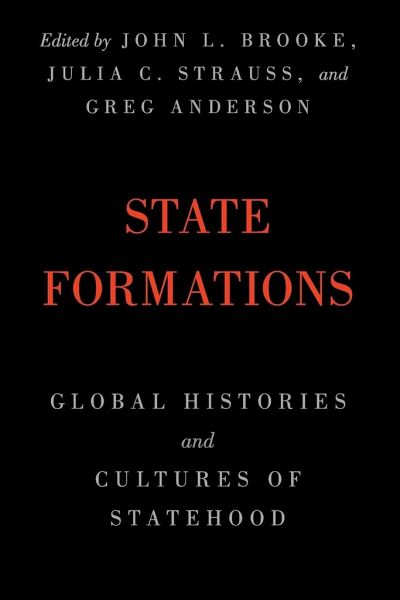
State Formations
Versandkostenfrei!
Versandfertig in 1-2 Wochen
40,99 €
inkl. MwSt.

PAYBACK Punkte
20 °P sammeln!
Featuring a sweeping array of essays from scholars of state formation and development, this book presents an overview of approaches to studying the history of the state. Focusing on the question of state formation, this volume takes a particular look at the beginnings, structures, and constant reforming of state power. Not only do the contributors draw upon both modernist and postmodernist theoretical perspectives, they also address the topic from a global standpoint, examining states from all areas of the world. In their diverse and thorough exploration of state building, the authors cross th...
Featuring a sweeping array of essays from scholars of state formation and development, this book presents an overview of approaches to studying the history of the state. Focusing on the question of state formation, this volume takes a particular look at the beginnings, structures, and constant reforming of state power. Not only do the contributors draw upon both modernist and postmodernist theoretical perspectives, they also address the topic from a global standpoint, examining states from all areas of the world. In their diverse and thorough exploration of state building, the authors cross the theoretical, geographic, and chronological boundaries that traditionally shape this field in order to rethink the customary macro and micro approaches to the study of state building and make the case for global histories of both pre-modern and modern state formations.


